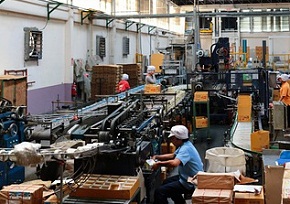Human Trafficking in the UK: How Companies Get Caught in the Slave Trade
Human Trafficking in the UK: How Companies Get Caught in the Slave Trade

The recent conviction of a UK business owner for a human trafficking offence has been a wake-up call to big businesses to carefully monitor their supply chain, if they are to avoid being connected to slave labour unwittingly.
But with the requirements of the Modern Slavery Act 2015 now in force, companies of every size need to check out where they stand, even if they are a small supplier much further down the supply chain.
With the new regulations now enforceable for any business with a financial year ending on or after 31st March 2016, many smaller companies may have checked the headline criteria and assumed they are not going to be affected by the Act, as the requirements apply only to organisations which carry on business in the UK with a global turnover of more than £36million, including subsidiaries.
Those companies that fit the criteria must provide a statement of the steps they are taking to ensure that no forced labour or human trafficking is taking place in any part of their business or supply chain. The slavery and human trafficking statement must be published on their website, with a prominent link on their homepage.
And the catch for smaller companies lies in where they sit in any such supply chain, many of which may be complex, as they are likely to find more questions being asked from the top of the supply chain. The result could be pressure on smaller companies to undertake detailed supply chain auditing themselves, in order to satisfy the demands of those larger companies.
In the case of the recent conviction, the owner of UK bed-making business Kozee Sleep was convicted of conspiracy to traffic by Leeds Crown Court and sentenced to 27 months in prison. Mohammed Rafiq’s trial followed the conviction of two Hungarian gangmasters who were found guilty of supplying Kozee Sleep’s UK factories with slave labour. They had promised Hungarian nationals good wages and housing, but instead the workers found themselves held in squalid conditions, not allowed to travel and made to work up to 16 hours a day, seven days a week, for less than £2 per day. Kozee Sleep’s beds were being supplied to a number of leading high street retailers, who had set out their ethical trading requirements, which Kozee Sleep failed to meet.
According to the Anti-Slavery Commissioner, this is not an isolated incident and many other cases are expected to go to trial. Another, involving Lithuanian workers experiencing inhuman working and living conditions, involved a poultry farm which is in the supply chain of well-known brand Happy Egg.
In the introduction to the corporate guidelines for the Act, Home Secretary Theresa May says:
“Modern slavery is a heinous crime that affects communities and individuals across the globe. Organisations with significant resources and purchasing power are in a unique and very strong position to influence global supply chains. It is not acceptable for organisations to ignore the issue because it is difficult or complex.”
If a business fails to produce a slavery and human trafficking statement for a particular financial year, the Secretary of State may seek an injunction through the High Court requiring them to comply. If they still do not comply, they will be in contempt of a court order, punishable by an unlimited fine.
Said corporate law specialist, Adam Dowdney:
“The Kozee Sleep case was one of the first prosecutions under the Modern Slavery Act and is proof that larger companies will have to carefully audit their supply chains as attention on how businesses are dealing with any potential slave labour intensifies. Inevitably, this is going to have an impact on smaller businesses within that supply chain as the level of scrutiny increases.
Companies who fall within the remit of the Act will have to establish well defined and clearly documented lines of responsibility to ensure compliance, with active diligence undertaken to ensure there are no breaches along the supply chain.
Similar to the requirements imposed by the Bribery Act, this will require positive action to be taken as a “wait and see” approach will not be sufficient. Like bribery, one would hope the concept of slavery for most businesses seems remote from their day to day activities, but this case shows that it may not be far below the surface and great care must be taken with supplier and trading partners. This will mean appropriate due diligence and audits being undertaken throughout the supply chain, which will increase the burden on smaller companies who may not naturally fall within the confines of the Act”.
Corporate and commercial law experts
Our experienced lawyers in West London are experts in all aspects of commercial and corporate law. For advice on the obligations of the Modern Slavery Act or to discuss any other corporate or commercial law issue such as acquisitions, mergers and disposals, corporate advisory and commercial contracts please contact us today on 01895 207973 or email corporate@ibblaw.co.uk. Alternatively please complete our online form.
